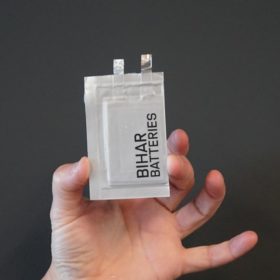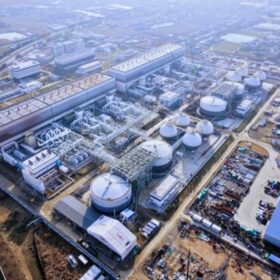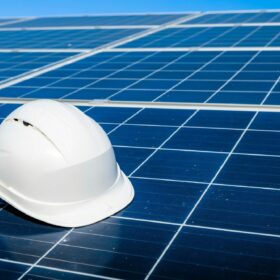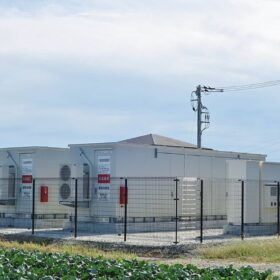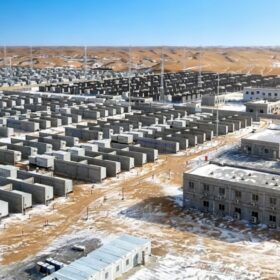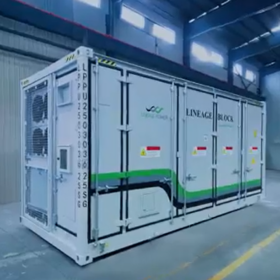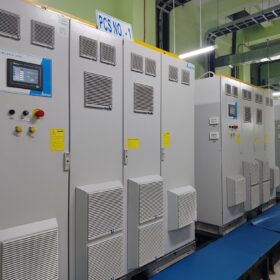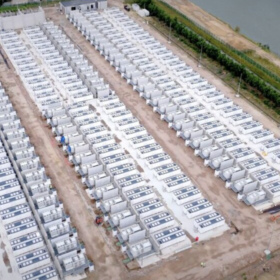ACME Solar signs 450 MW FDRE PPA with SJVN, commissions second phase of 285 MW/600 MWh BESS project in Jaisalmer
ACME Solar has secured two power purchase agreements (PPAs) with SJVN Ltd for 300 MW and 150 MW, totaling 450 MW, under a firm and dispatchable renewable energy (FDRE) project. The company also announced the commissioning of an additional 38 MW/82 MWh at its 285 MW/600 MWh battery energy storage system (BESS) project in Jaisalmer district, Rajasthan.
All European sodium-ion battery manufacturers at a glance
The European Economic and Social Committee (EESC) will place sodium batteries at the center of its work on the EU’s industrial strategy and is calling for swift action. pv magazine has compiled a list of manufacturers developing this technology in Europe.
China’s 600 MW/2.4 GWh storage plant becomes world’s largest CAES site
With 600 MW of installed capacity and 2,400 MWh of storage, the Huai’an Salt Cavern project is now the world’s largest compressed air energy storage (CAES) facility, surpassing the 300 MW/1,500 MWh project commissioned earlier this year that previously held the title.
Premier Energies buys 51% stake in EPC JV with BA Prerna Renewables
Indian solar manufacturer Premier Energies has completed the acquisition of 104,550 equity shares of HeliosAnthos Energies, securing 51% of the company’s paid-up equity share capital. HeliosAnthos Energies is a joint venture between Premier Energies and BA Prerna Renewables, formed to expand Premier’s presence in the engineering, procurement and construction (EPC) segment of renewable energy projects.
US energy storage shatters records with 58 GWh installed in 2025
The Solar Energy Industries Association (SEIA) and Benchmark Mineral Intelligence say US battery installations reached a record 57.6 GWh in 2025, up 30% year on year, as the industry enters what they describe as a new phase of sustained, high-volume deployment.
The Hydrogen Stream: India launches Hydrogen Valley Innovation Cluster under National Green Hydrogen Mission
India has launched the Hydrogen Valley Innovation Cluster under the National Green Hydrogen Mission to accelerate the transition of green hydrogen technologies from laboratory research to industrial deployment.
Vanadium flow and lithium-ion combine in world’s largest grid-forming hybrid storage plant in China
China brings online 300 MW/1,200 MWh grid-forming energy storage facility in Inner Mongolia, integrating lithium-ion and vanadium flow battery technologies.
Pace Digitek’s arm Lineage Power delivers 100th BESS container
Lineage Power, the energy storage arm of Pace Digitek Ltd, has delivered its 100th containerized battery energy storage system (BESS).
Delta Electronics deploys 6.4 MWh/4 MW battery storage solution for India’s first underground metro
Kolkata Metro has commissioned a 6.4 MWh/4 MW battery energy storage system (BESS) at the Central station of its Blue Line, setting a new benchmark for large-scale battery storage adoption in metro networks. Executed by Delta Electronics India, the system features all critical components designed and manufactured in-house, including the power conversion system, energy management system and battery racks.
SolarPower Europe issues due diligence guide for PV-BESS
SolarPower Europe has released new technical due diligence guidelines for utility-scale solar-plus-storage projects, covering risk, engineering and lifecycle standards for co-located PV and battery systems.

